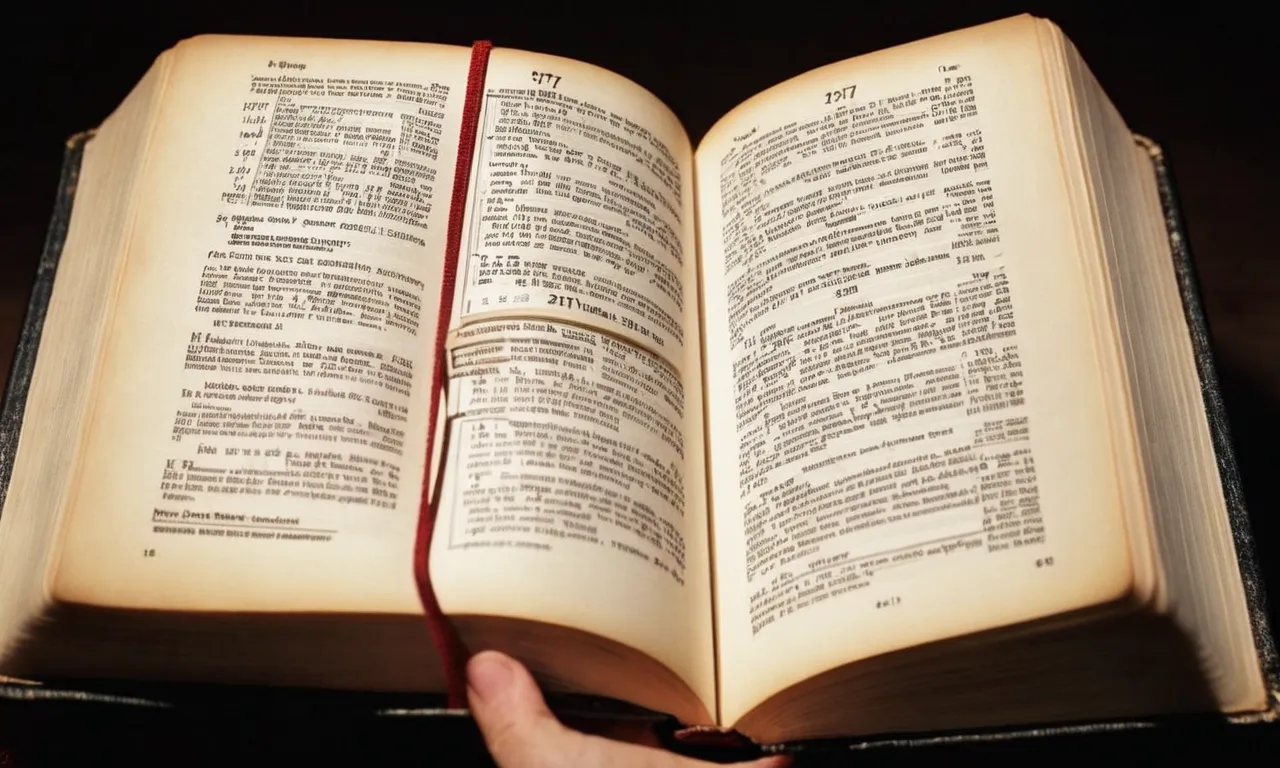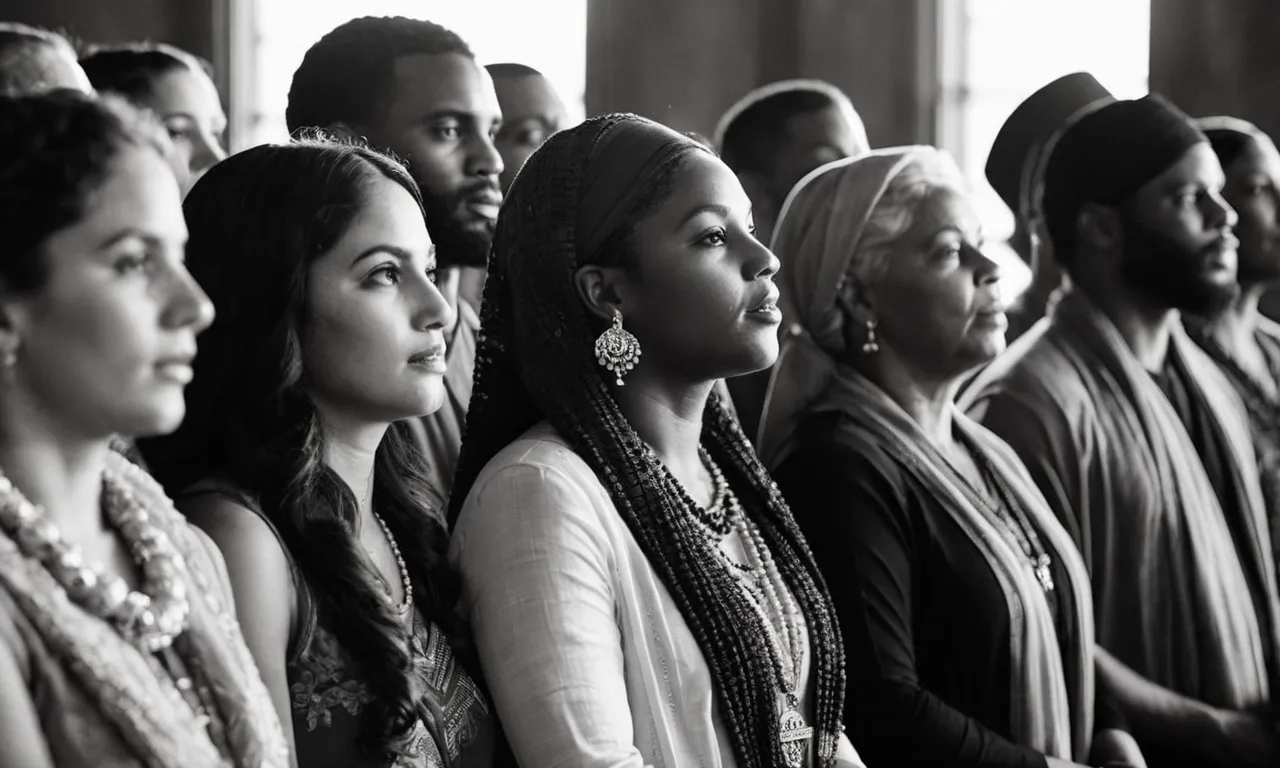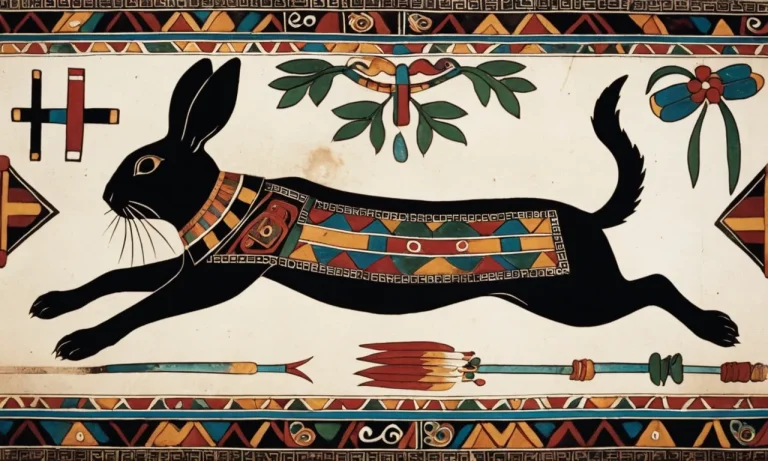People Who Trusted God In The Bible And Their Stories Of Faith
Trusting God when life gets difficult can be challenging. Yet throughout the Bible, we find inspiring stories of people who chose to put their complete faith in God during times of hardship and uncertainty.
Their courageous examples of trusting God’s plans over their own remind us that with faith, we too can overcome obstacles.
If you’re short on time, here’s a quick answer to your question: Many characters in the Bible demonstrated remarkable faith in God during trying times, including Abraham, Joseph, Moses, Joshua, Ruth, David, Daniel, Mary, and Paul.
Their stories reveal how God rewards and cares for those who trust in Him.
In this comprehensive article, we will explore the lives of numerous Bible figures who exemplified steadfast trust and obedience to God. We will reflect on how they clung to their faith during adversity and examine what we too can learn about wholly relying on God when facing trials in life today.
Abraham’s Trust in God’s Promises
Leaving His Homeland
God called Abraham (originally named Abram) to leave his homeland and go to a place that God would show him (Genesis 12:1). This was a bold request, as it meant leaving behind everything familiar and comfortable to go to an unknown destination.
Yet despite not having all the details, Abraham trusted God and set out in faith.
Abraham’s trust in God’s promise and guidance led him to travel over 1,000 miles from Ur to Canaan. This journey would have taken months or even years to complete on foot or by camel.
Throughout the difficult travels, Abraham persevered in faith, not knowing exactly where God was leading him.
Believing God’s Promise of a Son
God had promised Abraham he would become the father of many nations, and that kings would come from him (Genesis 17:5-6).
Yet at nearly 100 years old, Abraham had no children with his wife Sarah. Still clinging to God’s promise, Abraham trusted that somehow God would fulfill His word in His perfect timing.
Sacrificing Isaac
One of Abraham’s most famous stories of radical trust occurred in Genesis 22. God commanded Abraham to sacrifice his beloved son Isaac as an offering. Though undoubtedly devastated by the directive, Abraham obeyed promptly the next morning.
As Abraham raised his knife to kill his son, God stopped him, commended his willingness, and provided a ram to sacrifice instead.
Abraham’s quick obedience demonstrated tremendous faith that God had Isaac’s best interests in mind. He trusted God deeply, evidenced by his willingness to surrender his most precious promise. And again, God proved faithful by intervening and fulfilling His promises to Abraham.
Joseph’s Faith in God’s Plans During Suffering
Betrayed by His Brothers
Joseph was the beloved son of Jacob, who gave him a beautiful robe. However, his brothers were jealous and betrayed him, throwing him into an empty well and selling him into slavery in Egypt for 20 shekels of silver (Genesis 37).
Despite being abused by his brothers and unjustly sold into slavery, Joseph did not harbour bitterness but trusted God had a greater purpose amid suffering.
Unjustly Imprisoned in Egypt
In Egypt, Joseph found favour with his master Potiphar and was placed in charge over his household. However, he was unjustly accused and imprisoned when he refused advances from Potiphar’s wife (Genesis 39).
Though wrongfully jailed for years, Joseph trusted God and continued developing his gift for interpreting dreams there.
God gave Joseph favour to interpret dreams in prison, foretelling the end results exactly as prophesied. Still, his hopes of release were dashed as he remained imprisoned for another two years before being remembered.
Despite repeated injustice and hopes deferred, Joseph waited patiently on God’s plan with faith.
Rising to Power by Interpreting Pharaoh’s Dreams
When Joseph was finally brought to interpret Pharaoh’s dreams foretelling 7 years of abundance followed by 7 years of famine in Egypt, Pharaoh elevated him to second-in-command over all Egypt to prepare stores for the famine after seeing the wisdom God gave Joseph (Genesis 41:37-45).
Joseph implemented crucial economic reforms, storing surplus grains during bountiful years. This later provided relief for both Egyptians and foreigners when severe famine struck the region.
Through interpreting Pharaoh’s dreams, Joseph was strategically positioned by God to now save thousands from starvation.
Moses’ Dependence on God to Lead the Israelites Out of Egypt
God Calling Him through the Burning Bush
Moses was tending the flock of his father-in-law Jethro when God first appeared to him through a burning bush that was not consumed by the flames. God declared that He had witnessed the affliction of His people in Egypt and was ready to deliver them from bondage.
He commissioned Moses to go to Pharaoh and demand the release of the Israelites. Although initially reluctant, Moses accepted God’s call after being reassured that God would be with him (Exodus 3).
This encounter marked the beginning of Moses’ dependence on God’s power and guidance to fulfill the monumental task ahead.
Demanding Pharaoh to Let God’s People Go
After being empowered by God through signs and miracles, Moses and Aaron went to Pharaoh repeatedly, demanding that he let the Israelites leave Egypt.
Each time Pharaoh refused, God sent a devastating plague on the land – water turning to blood, frogs, gnats, flies, livestock diseased, boils, hail, locusts, darkness and death of firstborn sons (Exodus 7-12).
After each plague, Moses prayed and interceded for the people. Despite Pharaoh’s obstinance, Moses trusted that God would force Pharaoh to relent and release the Israelites.
Parting the Red Sea
After the final plague, Pharaoh allowed the Israelites to leave. However, he soon changed his mind and sent his army to pursue them.
Trapped at the Red Sea, Moses again turned to God, who miraculously parted the waters, allowing the Israelites to cross safely.
When the Egyptians tried to follow, the waters crashed down and drowned Pharaoh’s army (Exodus 14). This stunning demonstration of God’s power affirmed for Moses that leaving Egypt was part of God’s plan. Moses’ complete dependence on God was crucial in leading the people from slavery to freedom.
Joshua’s Obedience in Battle to Take the Promised Land
God Choosing Him to Succeed Moses
After Moses’ death, God selected Joshua to be the new leader of the Israelites. God promised Joshua that He would be with him just as He was with Moses (Joshua 1:5).
Joshua had served faithfully under Moses’ leadership for decades, but now God was calling him to lead over 2 million people into the promised land of Canaan.
This was a daunting task, but Joshua trusted in God’s strength and guidance.
Leading the People Across the Jordan River
One of Joshua’s first challenges was getting the Israelites across the flooded Jordan River to begin their conquest of Canaan. But Joshua believed God’s promise that He would perform wonders to help them cross over (Joshua 3:5).
At God’s command, Joshua told the priests to carry the Ark of the Covenant ahead of the people into the river.
Amazingly, as soon as they set foot in the water, the flow stopped and piled up in a heap! The Israelites crossed over on dry ground.
Trusting God’s Plan at Jericho
After crossing the Jordan, the Israelites set up camp near the fortified city of Jericho. God gave Joshua an unusual battle plan for defeating Jericho: march around the city once a day for six days with the priests blowing trumpets, then on the seventh day march around it seven times while giving a loud shout (Joshua 6:3-5).
This seemed like a foolish plan, but Joshua obeyed God’s instructions fully. On the seventh day, the walls of Jericho miraculously collapsed, allowing the Israelites to charge in and capture the city!
Throughout his leadership, Joshua listened to and obeyed God rather than relying on human wisdom and strength. His commitment ushered the Israelites into experiencing God’s power and faithfulness in remarkable ways.
Joshua is an inspirational example of unwavering faith and courageous leadership guided by complete trust in the Lord.
Ruth’s Faithfulness to Naomi and God
Choosing to Follow Her Mother-In-Law
After Ruth’s husband died, her mother-in-law Naomi decided to return to her hometown of Bethlehem. In an incredible demonstration of devotion and selflessness, Ruth chose to leave behind her homeland and gods to remain by Naomi’s side (Ruth 1:16-17).
As a Moabite woman, this meant becoming an outsider in Israelite society. However, Ruth prioritized caring for Naomi over her own comfort and security.
Ruth’s moving words to Naomi reveal the depth of her commitment: “Where you go I will go, and where you stay I will stay. Your people will be my people and your God my God” (Ruth 1:16).
Despite having no obligation to Naomi as her daughter-in-law after her husband’s passing, Ruth stuck by her mother-in-law’s side out of genuine love and sacrifice.
Her faithfulness bore sweet fruit, as God blessed Ruth for her selfless choice.
Marrying Boaz and Becoming King David’s Great-Grandmother
After arriving in Bethlehem with Naomi, Ruth went to work gleaning barley in the fields. The owner of the field, a man named Boaz, noticed Ruth’s character and commitment to Naomi. Following the Israelite custom of redemption by a family member (Leviticus 25:25), Boaz married Ruth to care for her and Naomi.
Ruth’s faithfulness to Naomi paved the way for God’s favor and blessings in her life.
Not only did Ruth gain a husband in Boaz, but she also became the great-grandmother of King David! As Matthew 1 records, Ruth gave birth to Obed, who fathered Jesse, who in turn was the father of David.
Generations after Ruth sacrificed her own future to care for Naomi, God brought her incredible honor by weaving her story into the lineage of Christ (Matthew 1:5). Ruth put others before herself and trusted God with her life, and He responded with abundant blessings.

David’s Dependence on God Against Goliath
Anointed as King Despite Being the Youngest Son
David was the youngest of eight sons in his family, so it seemed unlikely he would ever become king. However, God saw David’s heart and chose him to lead Israel after rejecting Saul as king.
When the prophet Samuel went to anoint one of Jesse’s sons as the next king, God told him in 1 Samuel 16:7, “Do not consider his appearance or his height, for I have rejected him.
The Lord does not look at the things people look at. People look at the outward appearance, but the Lord looks at the heart.” Though David was just a shepherd boy, God recognized his courage, faith, and integrity.
After David was anointed, he became Saul’s armor-bearer and musician. He grew in favor with Saul and the people as he slayed Goliath and led the troops with wisdom.
When Saul turned away from God, David had to flee and live in exile for years, though he had already been chosen as the next king.
Despite the challenges, David continued to trust God and rely on His strength. He penned heartfelt Psalms about his dependence on the Lord during this time. God was preparing David to lead with humility and point people to Him.
Defeating the Giant With a Slingshot and Stones
One of the best-known stories about David’s faith is his battle with the Philistine giant Goliath. When no Israelite soldier dared to face this over nine-foot tall warrior, David, still a teenager, volunteered to fight Goliath with just a sling and stones.
King Saul thought this was crazy, but David recounted how God had already helped him slay lions and bears as a shepherd.
As Goliath taunted him, David boldly declared in 1 Samuel 17:47, “All those gathered here will know that it is not by sword or spear that the Lord saves; for the battle is the Lord’s, and he will give all of you into our hands.”
With God’s help, he struck the giant’s forehead and killed him with one smooth stone. This stunning victory made David a national hero. Though he faced an intimidating foe, David relied on God’s power, not his own, and emerged victorious.
This shows that God can overcome any obstacle when we trust in Him.
Mary’s Acceptance of God’s Plan Despite Social Stigma
Visitation from the Angel Gabriel
The gospel of Luke describes how the angel Gabriel visited Mary, a young virgin engaged to Joseph, to inform her that she would conceive and bear a son named Jesus. This miraculous conception would happen through the power of the Holy Spirit while Mary was still a virgin (Luke 1:26-38).
Gabriel greeted Mary, telling her she had found favor with God. Understandably startled, Mary wondered how this virgin conception could happen.
Gabriel explained that the power of the Most High would overshadow her, and the baby would be called the Son of God.
This annunciation scene shows Mary’s courage and willingness to obey God despite the social stigma she likely faced. Although betrothed, Mary was still a young virgin, likely in her early teens.
Becoming pregnant before marriage violated social norms and decency laws, putting women at risk of public disgrace or even death by stoning (Deuteronomy 22:20-21).
Yet despite knowing the personal cost, Mary bravely accepted her divinely appointed mission to bear the Messiah, showing remarkable faith and submission to God.
Agreeing to Be the Mother of Jesus
Mary responded to Gabriel with faithful obedience, freely agreeing to become the mother of Jesus. Her humble words “I am the Lord’s servant” and “May your word to me be fulfilled” (Luke 1:38) express consent to an unmatched responsibility.
Though the angel’s message shattered Mary’s marriage and social standing, she courageously embraced God’s call on her life to birth the long-awaited Savior.
Mary’s quick, thoughtful questions to Gabriel contrast with Zechariah’s skeptical doubt when told his elderly wife would bear a son (Luke 1:18-20). This comparison highlights Mary’s pure-hearted faith.
Despite her youth and vulnerability, she recognized this pregnancy aligned with Scripture’s promises about the Messiah (Isaiah 7:14). Mary understood the honor bestowed on her and sacrificially accepted the role God offered.
After the angel left her, Mary visited Elizabeth, probably seeking wise counsel about her predicament (Luke 1:39-56). Though Gabriel had given Mary divine confirmation, the natural uncertainty of her unique situation likely pressed heavy on her heart and mind.
Yet Mary rose above fear and doubt to courageously embrace Gabriel’s revealed plan for her life, setting an inspirational example of trusting God wholeheartedly.
Paul’s Transformation from Persecutor to Devoted Follower
Encountering Jesus on the Road to Damascus
Saul, later known as Paul, was originally a fierce persecutor of early Christians. As a devout Pharisee, he believed that the followers of Jesus were heretics and sought to imprison them. However, his life was radically transformed when he had a miraculous encounter with the risen Jesus on the road to Damascus.
According to the book of Acts, a brilliant light from heaven flashed around Saul and he heard the voice of Jesus saying, “Saul, Saul, why do you persecute me?” (Acts 9:4).
Saul was blinded for three days and neither ate nor drank until a disciple named Ananias was sent to restore his sight.
After this life-changing experience, Saul became a completely devoted follower of Christ, taking the name Paul.
Spreading the Gospel Throughout the Roman Empire
After his conversion, Paul embarked on several missionary journeys to spread the gospel of Jesus Christ throughout the Roman Empire. He traveled over 10,000 miles across modern day Turkey, Greece, Italy and other Mediterranean countries preaching the message of salvation through faith in Christ.
Paul established churches in many major cities like Philippi, Corinth and Ephesus.
Though he often faced hostility from both Jews and Gentiles, he persevered in proclaiming the good news of Christ’s death and resurrection.
According to tradition, Paul was eventually martyred for his faith in Rome during Nero’s persecution of Christians in the A.D. 60s. His compelling story proves that God can radically transform even the most hardened opponents of the gospel into devoted followers by his grace.
Conclusion
The Bible brims with inspiring examples of people who trusted in God wholly, even when facing daunting trials and persecution. Though centuries apart, their stories convey a common message: with deep faith in the Lord, nothing is impossible.
God honors and shepherds those who cling to Him in good times and bad.
May the remarkable faith of Abraham, Joseph, Moses, Joshua, Ruth, David, Daniel, Mary, Paul, and others motivate us in our own walks with God. As we navigate challenges today, we can take comfort in the Bible’s testimony that He will never forsake those who put their complete trust in Him.








